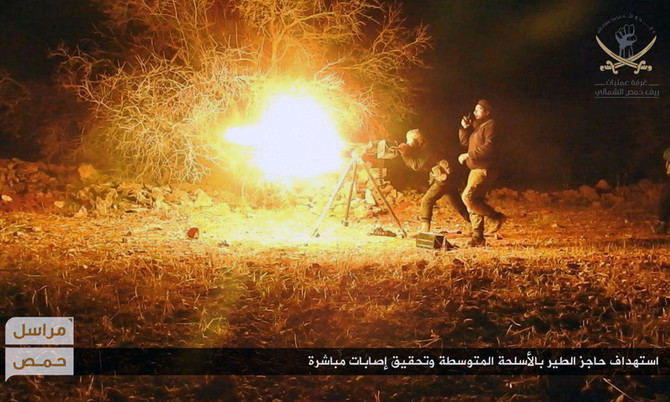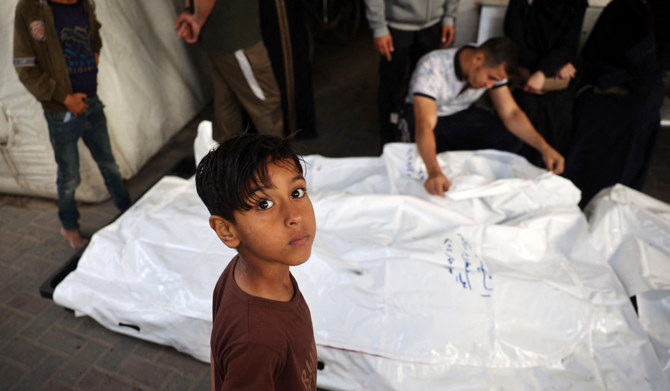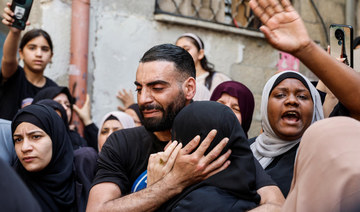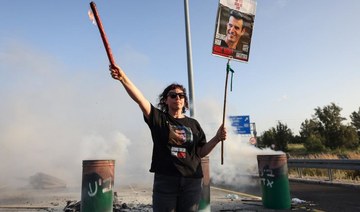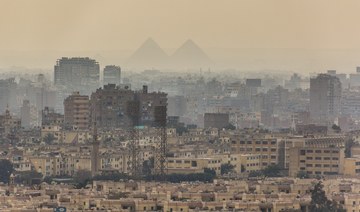GENEVA/BEIRUT: Syrian regime and opposition delegates to peace talks in Geneva on Saturday warned of the impact on negotiations after a day of violence in Syria that included jihadist suicide bombings and missile strikes by the air force.
The United Nations opened the peace talks with a symbolic ceremony on Thursday in Geneva, attended by representatives of the warring sides. But there has been no further direct contact with UN mediator Staffan de Mistura, who is still trying to get agreement on how the talks should be arranged.
With tensions palpable among participants, the United Nations is treading carefully in its efforts to revive negotiations after a 10-month hiatus.
“Every time we have talks, or negotiations, there is always someone who tries to spoil,” de Mistura told reporters before meeting the government delegation. “I am expecting (it),” he said.
A cease-fire brokered by Russia and Turkey with Iran’s support is increasingly violated with groups opposed to the truce and the Geneva process also attempting to force their collapse.
Suicide bombers stormed two Syrian security offices in Homs on Saturday, killing dozens with gunfire and explosions including the head of military security, prompting airstrikes against the last opposition-held enclave in the western city.
The jihadist rebel alliance Tahrir Al-Sham, which opposes the talks — although it has fought alongside factions that are represented there — said that five suicide bombers had carried out the attack. It celebrated with the words “thanks be to God” but stopped short of explicitly claiming responsibility.
Tahrir Al-Sham was formed this year from several groups including Jabhat Fateh Al-Sham, which was formerly known as the Nusra Front and was Al-Qaeda’s Syrian branch until it broke formal allegiance to the global jihadist movement in 2016.
Warplanes also carried out six raids on Douma in the eastern suburbs of Damascus, resulting in six deaths, and earlier, an air raid in Hama killed four people from the same family, the Syrian Observatory for Human Rights said.
Commitment
Speaking to Reuters, Basma Kodmani, a negotiator from the opposition High Negotiations Committee (HNC), said groups backing the talks had abided by the cease-fire, but questioned the regime’s commitment and whether Russia, a key Assad ally, was ready to pressure it to curb the violence.
“The cease-fire...is violated today in the most horrible way,” she said. “The use of napalm yesterday and today massive air bombings on the suburb of Waer of homs city. That is giving us very negative intentions about what the regime’s intentions are,” she said.
The Syrian Foreign Ministry said it had written to the United Nations demanding condemnation for Saturday’s attack and what it called other terrorist acts. Damascus regards all the groups fighting against it as terrorists.
“The terrorist explosions that hit Homs city are a message to Geneva from sponsors of terrorism, and we tell everyone that the message is received and this crime won’t pass unnoticed,” the regime’s chief negotiator Bashar Ja’afari told reporters.
Although Assad’s regime has controlled most of Homs since 2014, the opposition still control its Al-Waer district, which warplanes bombed on Saturday, wounding 50, the Observatory said.
“If it (cease-fire)is not credible, if nothing is happening here in Geneva, I fear that the cease-fire even for the opposition is going to collapse,” Kodmani said.
“Where is Russia to get compliance again from the regime so that the talks in Geneva can take place?“
De Mistura handed a working paper on procedural issues to delegations at the talks on Friday, but there appeared little prospect of them meeting directly soon. Further bilateral talks are scheduled for later on Saturday.
The envoy is looking to lay the foundations for negotiations to end the six-year-old conflict that has killed hundreds of thousands and displaced millions.
“It may be good not to have too high expectations but it also reflects the state of things,” said a Western diplomat.
“To get them in the room is symbolic. But there is no way you can get anything out of that at the moment unless you have the beginning of an agreement between the backers.”


